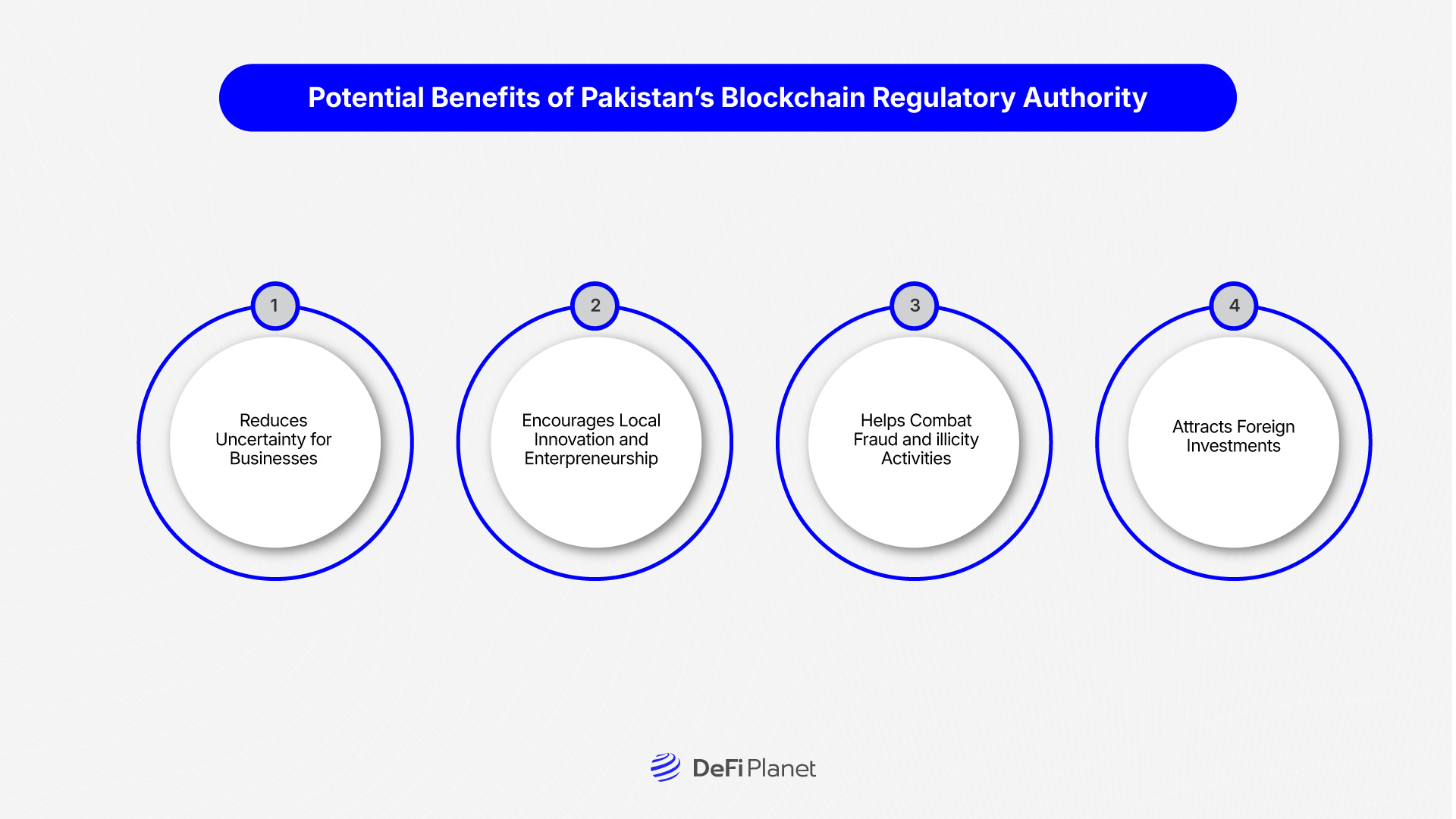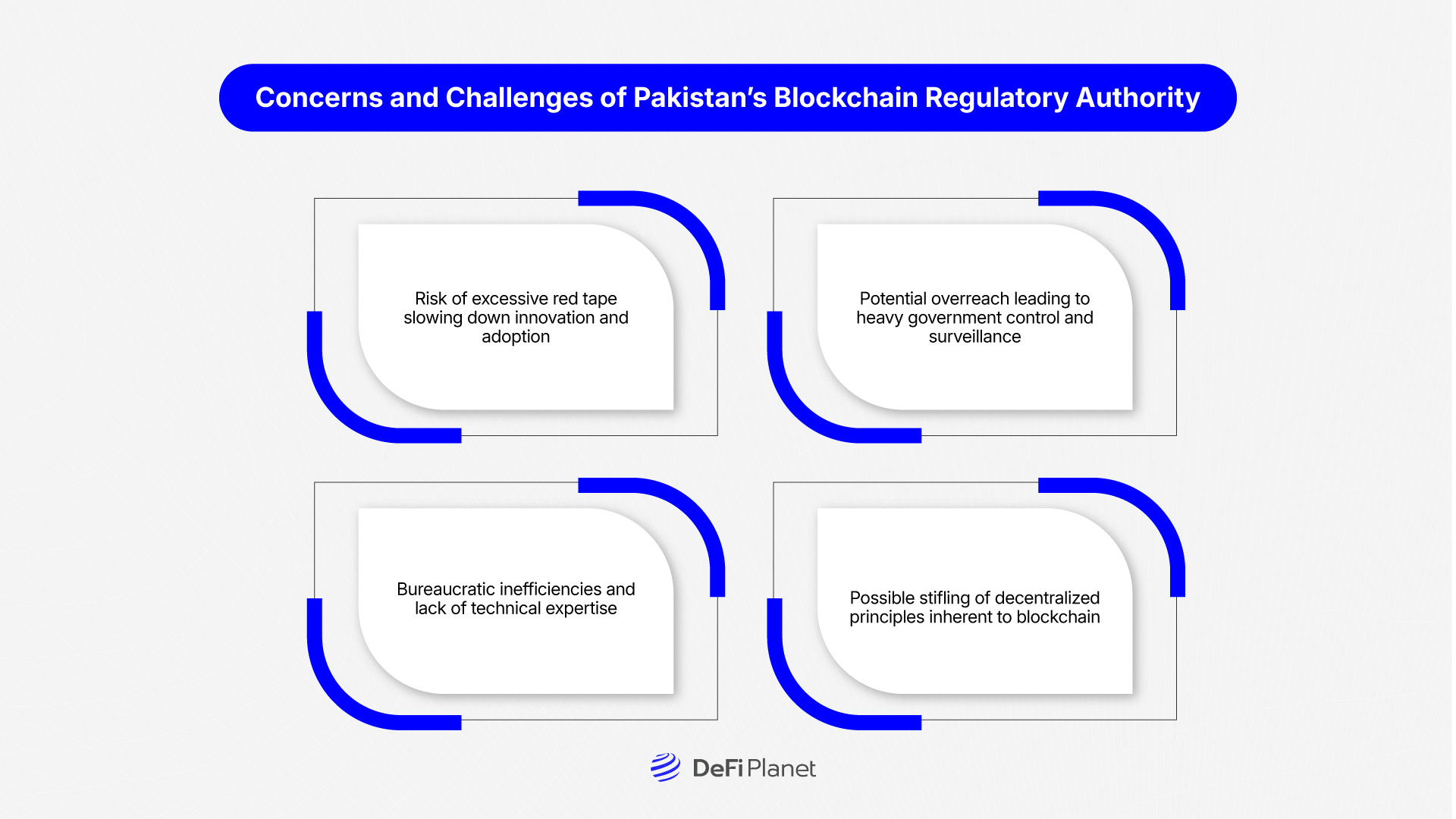Pakistan has officially announced the creation of a national blockchain regulatory authority aimed at overseeing and guiding the country’s blockchain and cryptocurrency ecosystem. This move comes amid growing global momentum as governments worldwide seek to establish clearer rules and frameworks for blockchain technology and digital assets.
The core question now is whether this new Pakistan blockchain regulation body will foster innovation and create a supportive environment for blockchain development, or whether it might introduce complex regulations that could slow growth and add bureaucratic challenges for startups and investors.
Objectives Behind Creating the Regulator
Pakistan’s recent establishment of the Pakistan Digital Assets Authority (PDAA) marks a significant step toward regulating its burgeoning digital asset sector. This move aligns with the country’s broader strategy to foster blockchain adoption, ensure consumer protection, and maintain compliance with international standards.
Government’s Stated Goals:
- Fostering Blockchain Adoption: The Pakistan blockchain regulation aims to promote the use of blockchain technology across various sectors, enhancing transparency and efficiency in public services.
- Protecting Consumers: By regulating digital asset platforms, the authority seeks to safeguard investors from potential risks associated with unregulated markets.
- Ensuring Compliance: The establishment of the PDAA is in line with the Financial Action Task Force (FATF) recommendations, ensuring that Pakistan’s digital asset activities meet global anti-money laundering standards.
Strategic Objectives:
- Attracting Fintech Startups: The regulatory framework is designed to create a conducive environment for fintech innovations, encouraging startups to establish and expand their operations in Pakistan.
- Building Investor Confidence: Clear regulations and oversight are expected to enhance trust among investors, both domestic and international, in Pakistan’s digital asset market.
- Aligning with Global Trends: Pakistan’s approach reflects a commitment to integrating with global blockchain and cryptocurrency developments, positioning the country as a competitive player in the digital economy.
As Pakistan moves forward with the PDAA, the focus will be on balancing innovation with regulation to harness the full potential of blockchain technology while mitigating associated risks.
Potential Benefits of Pakistan’s Blockchain Regulatory Authority
The Pakistan blockchain regulation authority marks a significant step toward shaping the country’s digital economy and crypto space.

Reduces uncertainty for businesses:
A clear and official regulatory framework gives blockchain and crypto businesses legal certainty, which is crucial for long-term planning and investment. Without ambiguous rules, companies can confidently develop products, seek partnerships, and expand operations knowing they are compliant with the law.
Encourages local innovation and entrepreneurship:
Transparent and supportive regulations create a fertile ground for startups and innovators. Entrepreneurs are more likely to invest time and resources into developing blockchain solutions when they understand the rules and feel protected from arbitrary restrictions or enforcement, which helps grow Pakistan’s domestic blockchain ecosystem.
Helps combat fraud and illicit activities:
By introducing oversight and compliance requirements, the regulator can significantly reduce fraud, scams, money laundering, and other illegal activities that often plague unregulated crypto markets. This safeguards consumers, builds trust in blockchain technologies, and improves the sector’s overall reputation.
Attracts foreign investment:
International investors and fintech firms prefer markets with clear regulatory standards and robust enforcement. Establishing a blockchain regulator positions Pakistan as a credible and stable destination for foreign capital, fostering cross-border partnerships and accelerating growth in its technology sector.
Concerns and Challenges of Pakistan’s Blockchain Regulatory Authority
While establishing a regulator offers benefits, it also raises significant concerns and challenges that could impact innovation and blockchain adoption.

Risk of excessive red tape slowing down innovation and adoption
Overly complex regulations and lengthy approval processes can create significant barriers for blockchain startups and developers. This red tape may increase operational costs and delay the introduction of new products and services.
In a fast-evolving industry like blockchain, slow regulatory responses can cause companies to lose their competitive edge or move operations to more flexible jurisdictions, ultimately hindering Pakistan’s potential to become a blockchain innovation hub.
Potential overreach leading to heavy government control and surveillance
The regulator could impose stringent requirements for data collection, transaction monitoring, and identity verification that border on invasive surveillance. Such measures may infringe on user privacy and deter individuals and businesses from fully engaging with blockchain platforms.
Heavy government oversight risks transforming a decentralized technology into a centralized system, contradicting the very nature of blockchain and potentially limiting its adoption among privacy-conscious users.
Bureaucratic inefficiencies and lack of technical expertise
Creating and enforcing effective blockchain regulations requires deep technical understanding and industry knowledge. If the regulatory body lacks sufficient expertise, it may produce ambiguous or impractical rules that confuse businesses and investors.
This could lead to inconsistent enforcement, compliance difficulties, and a loss of confidence among stakeholders, making Pakistan less attractive to blockchain entrepreneurs and foreign investors.
Possible stifling of decentralized principles inherent to blockchain
One of blockchain’s key innovations is decentralization, which reduces reliance on central authorities and empowers users. Heavy-handed regulation risks pushing projects towards centralized models to comply with legal requirements, thus undermining the technology’s foundational benefits.
Overregulation also discourages open-source development and community-driven initiatives, limiting innovation and the broader socio-economic benefits that blockchain adoption could bring to Pakistan.
Comparing Global Examples
Around the world, several countries provide useful models for blockchain regulation that Pakistan can learn from. Singapore stands out as a success story, having developed a regulatory framework that balances innovation with investor protection.
It’s clear licensing regimes and open communication with blockchain companies have attracted a thriving fintech sector, making Singapore a global crypto hub without compromising oversight.
Similarly, Switzerland’s “Crypto Valley” offers an excellent example of how flexible yet transparent regulations can fuel rapid industry growth. By fostering cooperation between regulators, startups, and financial institutions, Switzerland has created a supportive environment that encourages innovation while maintaining compliance with international standards.
Conversely, some countries illustrate the risks of over-regulation. Heavy-handed or ambiguous rules in these places have caused blockchain businesses to either scale back operations or move to friendlier jurisdictions, stunting local innovation and reducing investor confidence. These cautionary examples highlight how excessive bureaucracy, unclear policies, or restrictive controls can hamper the blockchain ecosystem’s potential.
For Pakistan, these global experiences underscore the importance of creating a balanced regulatory framework that protects consumers and the market without imposing unnecessary burdens. By prioritizing clarity, encouraging industry collaboration, and allowing room for technological advancement, Pakistan can build a strong foundation for blockchain adoption that attracts investment and supports sustainable growth.
What This Means for Pakistan’s Blockchain Ecosystem
Understanding the impact of the Pakistan blockchain regulation is key to assessing the future of its blockchain ecosystem.
Short-term impact on startups, investors, and users
The immediate effects of introducing a Pakistan blockchain regulation may create a period of adjustment and uncertainty. Startups may face new compliance hurdles and legal requirements, which could slow down their product launches or innovation cycles.
Investors, both domestic and international, could become more cautious as they wait to understand the full regulatory landscape. Users may also experience changes in service availability or terms as companies adapt to new rules.
However, this initial uncertainty can be mitigated if the regulator communicates clearly and provides support for the industry during the transition.
Long-term implications for Pakistan’s digital economy and fintech reputation
Over time, a clear and balanced regulatory framework can significantly enhance Pakistan’s position in the global digital economy. It can attract greater foreign direct investment by reducing risks associated with legal ambiguity and fraud.
This environment encourages the growth of fintech and blockchain startups, which can boost innovation, job creation, and technological advancement.
Successfully integrating blockchain into sectors like finance, supply chain, and governance can improve efficiency and transparency, ultimately strengthening Pakistan’s reputation as a progressive and tech-friendly economy in the region.
The role of stakeholder engagement and regulatory transparency
For regulation to be effective and sustainable, ongoing engagement with industry stakeholders, including startups, investors, developers, and consumer groups, is essential. Their input ensures that policies are realistic, innovation-friendly, and responsive to evolving technologies.
Transparency in regulatory decision-making builds trust and reduces fears of overreach or corruption. Open communication channels, public consultations, and clear guidelines help create a collaborative ecosystem where both regulators and market participants work toward shared goals of growth, security, and fairness.
Final Thoughts
The Pakistan blockchain regulation could play a crucial role in driving innovation and positioning the country as a significant player in the rapidly evolving global fintech and blockchain landscape. By providing a structured regulatory framework, the authority can help startups, investors, and users operate with greater confidence, fostering a safer and more transparent environment that attracts both local entrepreneurs and foreign investment.
However, the potential benefits come with important risks. Excessive bureaucracy, overly strict compliance requirements, or a focus on control rather than collaboration could create hurdles that stifle innovation and slow the growth of Pakistan’s blockchain ecosystem. Without careful implementation, the regulator might unintentionally push projects and talent to more flexible jurisdictions, limiting the country’s ability to capitalize on emerging opportunities in the decentralized technology space.
For Pakistan to fully realize the promise of blockchain technology, it’s essential that the regulatory framework remains clear, adaptive, and informed by ongoing dialogue with industry stakeholders. A tech-savvy and flexible approach will enable the regulator to evolve, ensuring it supports innovation while protecting consumers. This balanced strategy will be key to building a vibrant, resilient digital economy and enhancing Pakistan’s reputation as a forward-looking hub for blockchain and fintech development.
Disclaimer: This article is intended solely for informational purposes and should not be considered trading or investment advice. Nothing herein should be construed as financial, legal, or tax advice. Trading or investing in cryptocurrencies carries a considerable risk of financial loss. Always conduct due diligence.
If you would like to read more articles like this, visit DeFi Planet and follow us on Twitter, LinkedIn, Facebook, Instagram, and CoinMarketCap Community.
Take control of your crypto portfolio with MARKETS PRO, DeFi Planet’s suite of analytics tools.”





















